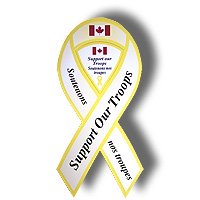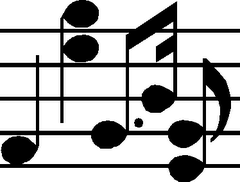The letter, with coloured hearts around its edges, was written by a Grade 7 student in Toronto who was born in Kabul. It tells the story of a little girl whose family fled to Pakistan after being chased from their homeland by the Taliban. Once there, her one-year-old sister was kidnapped.
"My mom wanted a country that was safe and where I would be able to learn so we came to Canada," the neatly typed letter reads. "Thank you so much for trying to make my country a better place and tell your soldier friends that I said thank you."
In a place where a bomb or a rocket sometimes barely merits getting out of bed, the letter tugs at the heart strings of the battle-hardened men and women of the Royal Canadian Dragoons out on patrol in Afghanistan.

Many of the soldiers in Spin Boldak, a ramshackle outpost in southeastern Afghanistan just six kilometres from the Pakistan border, are barely aware of the political tremors in Ottawa over reports that Afghan prisoners have been tortured in prison after leaving Canadian custody.
But they feel acutely that most of their fellow Canadians at home are themselves largely oblivious to their efforts to improve the lives of ordinary Afghan people.
During his visit to Kandahar last week, Canada's top soldier, Gen. Rick Hillier, said in his typically blunt fashion that the soldiers are "pissed off" that the detainee controversy has dominated headlines at home.
"If they're pissed off about anything, it's that we are here and we're doing so much other good stuff, and nobody's talking about it now," said Maj. Steve Graham, reconnaissance squadron commander with the Dragoons, currently deployed in Spin Boldak.
"Everybody right now is focused on this (detainee) aspect which, for us, is really an incredibly small part of everything we've done."
Many soldiers, when asked whether they've ever handled a detainee, respond with a blank look or a shake of the head.
Some are largely unaware of the controversy that has gripped the House of Commons for two weeks since news broke of allegations that prisoners handed over by Canadians to Afghan security forces have been abused and tortured.
Cpl. Fernando Arduengo, 28, of Markham, Ont., acknowledged the significance of the detainee story and said he understands that it needs to be told.
"Yes, there's stuff that happens here that's really negative, but my personal opinion of it is we're doing a hell of a lot of good things, and for it to get sidelined - it kind of sucks that things happen that way," Arduengo said.
"My wish is that the stories that are covered are on the positive things that we do. What we're doing here is we're trying to establish peace and security for these people."
Reconnaissance Squadron has handled two detainees since they were deployed shortly after Christmas, Graham said. And while none of the soldiers want to see the rights of the prisoners violated, certain realities exist in a country such as Afghanistan, he added.
"We certainly don't want them to be tortured, we don't want them to be abused, we want a process to be followed the way there is at home," Graham said.
"Ideally, we want them to follow exactly the same rules and regulations that we have, but that's not going to happen. That's not the way this country is."
For Arduengo, the handling of detainees is simple: "Treat them the way you would like to be treated."
"If they took you down, we obviously know they wouldn't be nice - at all. But how would you like to be treated? I think that's how we go about it."
Graham said most soldiers know how the system in Ottawa works, and often what looks like a lack of political support back home is little more than an opposition party's effort to score points against the government.
"All the soldiers understand that in a democracy, that's the way it works," he said.
"As long as we're sent here and we're given the tools that we need to do the job here, political debate back home is fine, and that's a good thing in a democracy."
"As long as we're getting everything we need to do our job here - the job that we've been asked to come and do - I think the guys understand the way the system works back home."
Which is why, when it comes to catching up on current events, many soldiers prefer to get their news from a class of schoolchildren than from reading Canadian newspapers or watching television.
Sgt. Dave Camp, who commands a section of engineers attached to the Dragoons, said he has hundreds of letters of support from countless school kids in his home town of Shelburne, N.S.
He plans to hand-write replies to each and every one.
"I don't know - I guess it's my upbringing," Camp said. "I'll be awful disappointed in myself if I don't get it done."
Camp said he's only heard talk about the detainee controversy, but he said it's disappointing that it has overshadowed Canada's efforts to help the people of Afghanistan.
"That might be a bad thing ... but the cases of bad, if it occurred, is a fraction of the good that's being done," he said.
"If people are going to run with the bad, they're going to run with the bad. In the end, the good is still going on, and I'm still doing my job."





























No comments:
Post a Comment